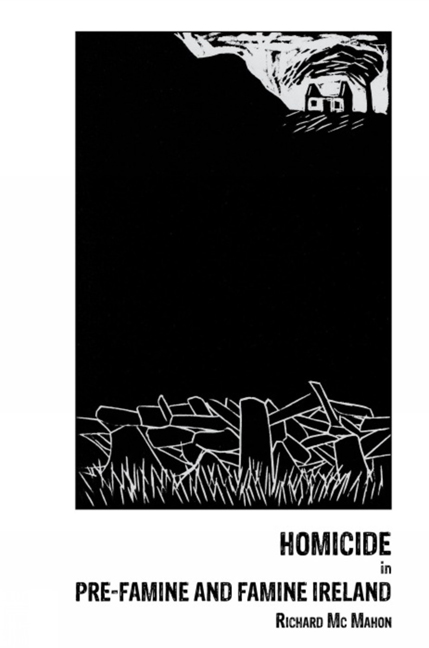Book contents
- Frontmatter
- Dedication
- Contents
- List of tables and figures
- Preface
- ‘A violent society’?
- 1 Homicide rates in Ireland, 1801–1850
- 2 ‘Do you want to pick a fight out of me?’: Homicide and personal relations
- 3 ‘Sending them to heaven’: Homicide and the family
- 4 ‘The tranquillity of a barrel of gun powder’: Homicide and land
- 5 ‘The madness of party’: Homicide and sectarianism
- Conclusion
- Appendix one: Methods and sources
- Appendix two: Homicide and motive
- Bibliography
- Index
2 - ‘Do you want to pick a fight out of me?’: Homicide and personal relations
- Frontmatter
- Dedication
- Contents
- List of tables and figures
- Preface
- ‘A violent society’?
- 1 Homicide rates in Ireland, 1801–1850
- 2 ‘Do you want to pick a fight out of me?’: Homicide and personal relations
- 3 ‘Sending them to heaven’: Homicide and the family
- 4 ‘The tranquillity of a barrel of gun powder’: Homicide and land
- 5 ‘The madness of party’: Homicide and sectarianism
- Conclusion
- Appendix one: Methods and sources
- Appendix two: Homicide and motive
- Bibliography
- Index
Summary
Studies of violence in Ireland in the first half of the nineteenth century have generally focused on conflicts arising from the rural economy and, to a lesser extent, from religious divisions and popular, or more particularly, Catholic alienation from the existing political and legal order. Indeed, it has been often assumed that these were the primary causes of violent activity in Ireland at that time. There can be little doubt that such studies have added immeasurably to our understanding of Irish society in the nineteenth century. The problem with this emphasis, however, is that more personal and less directly economic, political and religious disputes have not received the attention they merit. This chapter redresses this imbalance by exploring the part played by lethal violence in what I term personal disputes. Any wider understanding of patterns of violent activity in Ireland at this time depends on a study of such cases. This is not least because, as Carolyn Conley has noted for the late nineteenth century, ‘the bulk of Irish violence was personal’ and ‘agrarian, political and sectarian violence constituted only a small part of Ireland's criminal violence’. This assertion holds true for the pre-Famine and Famine period too.
This is evident from reports of homicide cases in national samples for Ireland from 1843 to 1845 and between 1847 and 1849, as well as a more long-term study of four counties – Co. Armagh and Co. Fermanagh in the north, and Queen's Co. and Co. Kilkenny in the south of the country. Personal disputes were the single largest cause of homicide in all the above samples. Despite the fact that violence arising from personal disputes constituted such a significant element of violent activity in the nineteenth century, it has received relatively little attention. There are two main exceptions to this. Desmond McCabe has examined the role of violence in personal relationships in pre-Famine Mayo, while Carolyn Conley, in her study of late nineteenth-century Ireland, has also focused on the more personal origins of violence. For McCabe, the use of violence was linked to a sense of personal and familial honour, the attainment and achievement of which was central to the maintenance of personal and familial security and status within communities.
- Type
- Chapter
- Information
- Homicide in pre-Famine and Famine Ireland , pp. 32 - 58Publisher: Liverpool University PressPrint publication year: 2013



